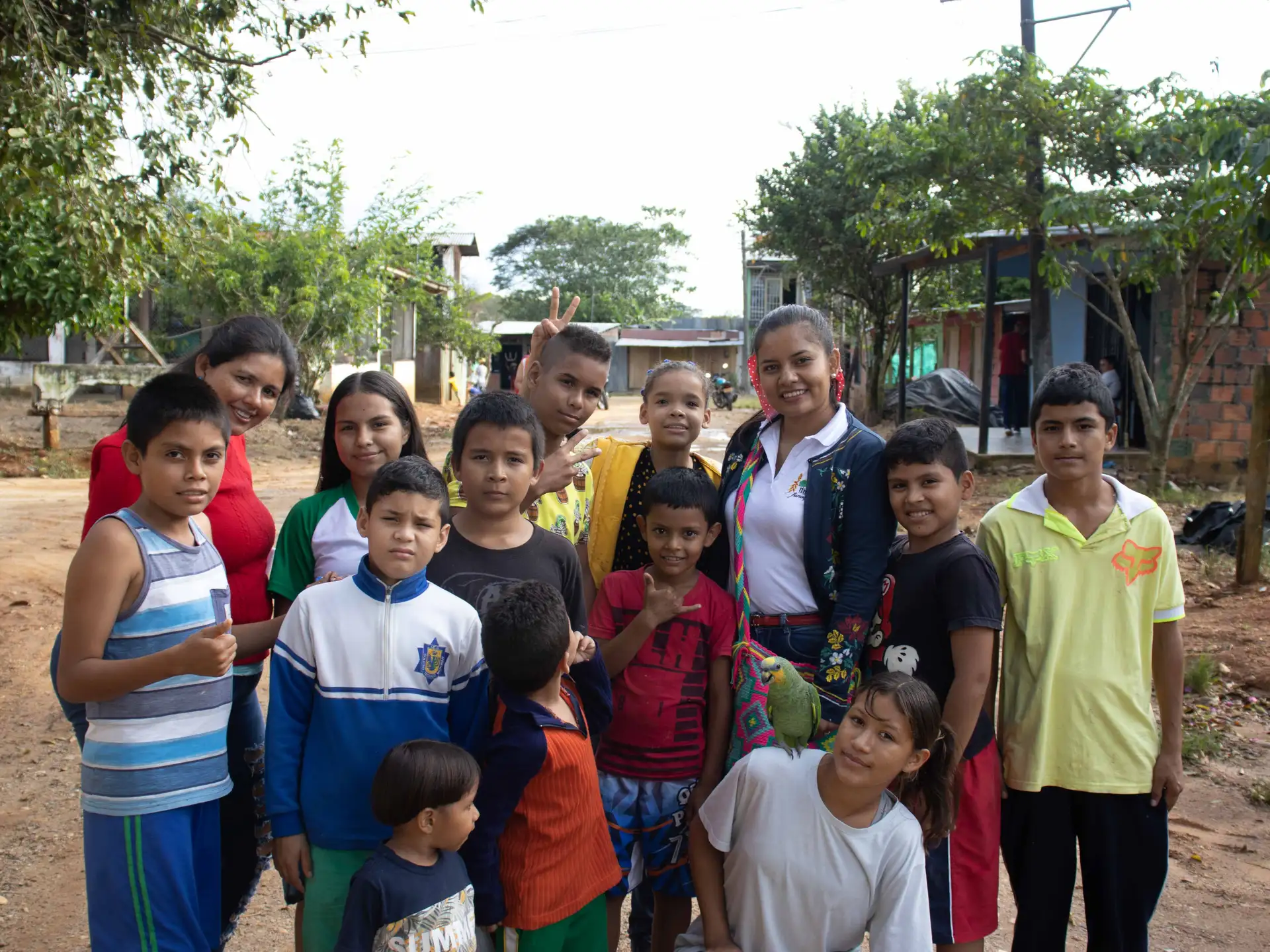The Amazon is reaching the point of no return
If deforestation continues, the Amazon will lose its ability to produce its own rainfall and the largest rainforest on the planet will become dry grassland.


Jenny holding seeds from Amazon trees
Poverty and the threat of violence cast a shadow over childhood in Colombia but one woman is training young people to advocate for their communities, work for peace and safeguard the Amazon.
After 50 years of conflict, Colombia is not an easy place for young people. A peace deal was signed in 2016, but especially in rural areas, many children are still at risk. Legal and illegal armed groups continue to exist and infrastructure remains poor, meaning that some areas lack running water, electricity and access to healthcare. In addition, swathes of rainforest are being felled to graze cattle.
One woman is equipping young people to speak up in this challenging environment. Jenny Garzón Saavedra, 28, is a youth worker in San Vicente de Caguán, in the Colombian Amazon. She works for a CAFOD partner, FUNVIPAS, the social outreach team of the local diocese, to support children and young people to improve where they live. CAFOD works with partners who are based in-country and are therefore best placed to hear directly what communities’ needs are.
Jenny teaches young people about their rights, such as the right to clean drinking water and a safe and healthy environment, and how to participate in decisions that affect them. She uses art with young people to help them express their feelings and how they see the world around them, and how to get on with each other.
She also teaches them how to care for the Amazon, which is so under threat but so vital in combatting the climate crisis. With her help, young people have identified problems that are causing damage, and are recycling rubbish and creating everyday items such as brooms and backpacks out of discarded plastic. The young people also run community clean-up days; they learn about the importance of the trees and native seeds, and how and when to plant them. And they are leading reforestation campaigns, to replace trees that have been chopped down to make way for cattle.


Jenny and one of her groups after a painting workshop
Two women have inspired Jenny to take action: her mother, and Gerardina, the coordinator of the Amazonian project CAFOD supports.
Jenny says: “It is time to contribute to protecting the Amazon. The earth is crying out to us and needs us.”
Jenny has seen the impact of her work through two sisters she has worked with since they were young. One of them is the president of the local Children’s Council, and one is its secretary. They have learned how to speak up and present their ideas, and have met with local authorities, including the Mayor’s office, to ensure that their proposals and their fundamental rights as children are taken into account.
“We need to change this culture of causing harm to our environment”
The conflict that persists in Colombia has left marks that are not easily erased, but Jenny says that she will never lose hope of achieving peace. She adds that her faith helps her to persevere.
She hopes the young people she works with will go on to train other children to improve the world around them.
“We need to change this culture of causing harm to our environment,” Jenny says. “We must make sure that we generate a network so that our voices from every corner of the world are heard… Our common home concerns us all.”
If deforestation continues, the Amazon will lose its ability to produce its own rainfall and the largest rainforest on the planet will become dry grassland.
In the past, the community was regularly terrorised by armed men who would shoot indiscriminately, kill livestock and set fire to their crops and straw houses.
Play your part in tackling the climate crisis by making a swap in your life – and urge politicians to do the same.
A community near Lake Titicaca in Bolivia have come together to clear the tons of waste that washed up on their doorstep.
The agreement to "transition away from fossil fuels" is the first time governments have committed to move away from fossil fuels in more than thirty years of UN climate meetings.
In his message at the summit in the United Arab Emirates, the Pope called on governments to put the global common good ahead of national interests.
The COP28 climate talks have begun with countries agreeing on the first day of the UN summit how a loss and damage fund will operate.
Add your voice to Pope Francis' call for leaders at the UN climate summit to take the action we need to tackle the climate crisis.
The new apostolic exhortation Laudate Deum follows eight years after Laudato Si’, in which Pope Francis called for all people to care for our common home.
Speaking on BBC World News, CAFOD’s Head of Advocacy, Neil Thorns, said “the UK is leaving its international reputation in tatters”.